Summer is around the corner.
And that means it is time to take your countertop ice maker out of storage and put it to work. These compact yet indispensable appliances offer a convenient solution for keeping drinks cool and refreshing during the sweltering months. But imagine pouring yourself a drink and reaching your countertop ice maker for some ice only to find your countertop ice maker not working.
The countertop ice maker not making ice will put a damper on your plans and leave you scrambling for ice alternatives and wondering: why is my countertop ice maker not working?
Well, despair not! In this comprehensive guide, we are going to discuss all about troubleshooting countertop ice makers—from learning common issues with countertop ice makers not working to troubleshooting them and why you should upgrade to a VEVOR countertop ice maker.
So, let’s get started!
Table of contents
Common Issues With Countertop Ice Maker Not Working
There could be many reasons responsible for your countertop ice maker not working. Below, we have discussed the most common issues:
- Ice maker not turning on: The most common issue people encounter with their countertop ice makers is that they won’t turn on. When an ice maker is not turning on, the main cause is a lack of power supply—either the power cord is damaged, or it’s not plugged in.
- Not making ice: Sometimes, the ice maker turns on just fine, and everything seems to be in place and perfectly working, but the ice maker won’t make any ice. In such cases, the potential causes include an empty water tank, low water pressure, clogged water filter, or faulty water inlet valve.
- Slow production and thin ice cubes: Your ice maker seems to work just fine but slower—not only is the ice production slow, but the cubes are also a bit thin. In such cases, the refrigerant level of the device might be low, or there might be dust buildup on its condenser coils. Also high ambient temperature could also be a factor here.
- Compressor not working: It is common for ice makers to stop working when their compressors stop working. In such cases, it could be poor ventilation around your ice maker that is heating up the compressor and preventing it from functioning properly. Similarly, the compressor might be faulty, requiring professional care or replacement.
- Fan not working: In air-cooled ice makers, properly functioning fans are imperative for the ice-making process. Fans not only help keep the condenser coils cool but also help exhaust air to keep the system cool. When the fan stops working, so does the ice production. When a fan is not working, there could be two potential reasons: either the fan motor is damaged, or there is dust and debris buildup.
- Empty water tank: Ice makers do not make ice out of air—they use water to produce ice. So when the water tank of your countertop ice maker is empty, do not expect it to make ice.
- Stoppage indicator is on: When the stoppage indicator is on, there could be a few things wrong with your ice machine, including a full ice bin, a clogged drain line, or a sensor malfunction. Also, there could be something wrong with the refrigeration system of the ice maker or its infrared tray.
- Add water to the tank indicator is on: This could mean that either there is not enough water in the tank or there is something wrong with the float mechanism.
- Weird noises: Weird noises coming from an ice maker could be an indication of loose components, worn bearings, or a failing compressor. It could also indicate that the ice maker is not leveled.
- Ice melting too quickly: If the ice maker seems to be working just fine, but the ice cubes keep melting fast, the ambient temperature is mostly the culprit—either the surrounding temperature is high, or ventilation is poor. Also, damaged or poor insulation might also share the blame here.
- Ice not ejecting: When an ice maker is producing ice but not ejecting it, there could be different possible causes, including a worn-out dispenser or ejector, jammed chute, clogged dispenser, ice clumps in the bin, etc.
- Ice machine leaking: A leaking ice machine would not only make a mess but would also affect ice production. Leaking mostly occurs due to faulty or incorrectly installed water pumps, stuck ice, or there is a problem with the water line or water inlet.
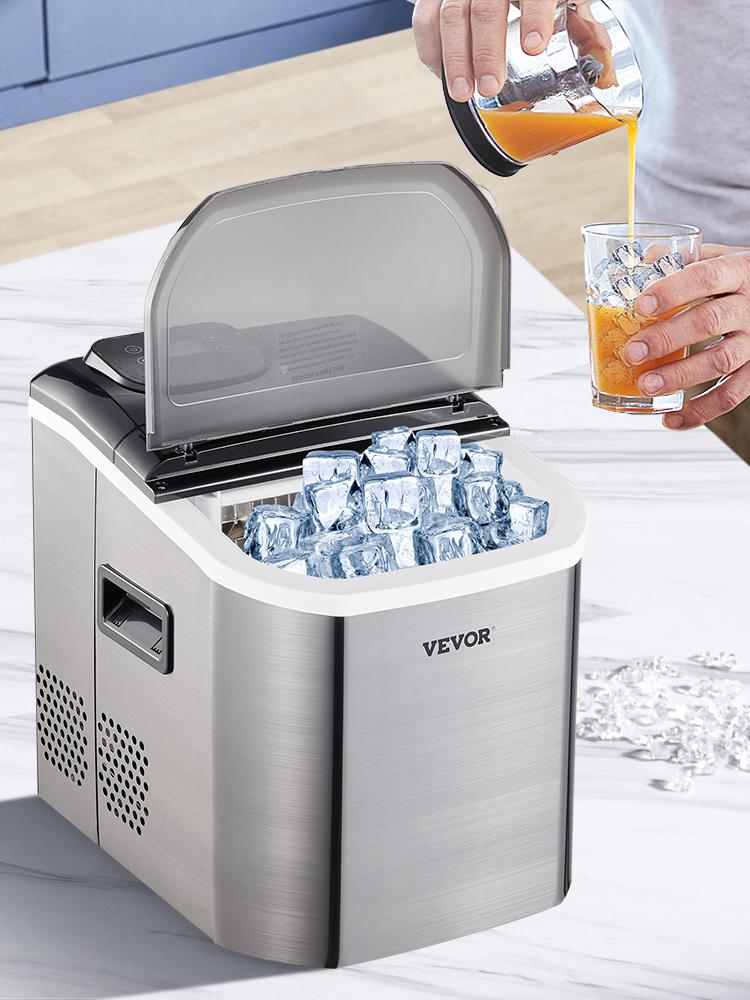
Countertop Ice Maker Troubleshooting
Now that we have discussed the potential reasons underlying a countertop ice maker not working, let’s discuss how you can troubleshoot a countertop ice maker.
1. Check Power Supply
If your countertop ice maker (or any other electronic device) ever stops working, the first thing you want to do is to check the power supply. Make sure that the power cord is not damaged, that it is properly plugged in, and that the power is flowing.
2. Check Water Supply
Secondly, you want to make sure that the water tank of your countertop ice maker is filled to the appropriate level and that the float mechanism inside moves freely, allowing water to enter the ice maker. Also, check if the water filter needs to be changed, as a clogged filter could inhibit water flow. You may also want to look for leaks and check the water pressure.
3. Check Drainage Set up
Proper drainage is imperative for the proper functioning of an ice maker. So, make sure that there is no blockage in the drain line, as it could prevent water from properly exiting the ice maker, leading to malfunction.
4. Check Ice Level
Ensure that the ice bin is properly inserted, as a misaligned bin could prevent the shutoff mechanism from functioning correctly. Also, check the ice level in the bin. If there is ample ice in the bin, you may want to empty it. Besides that, check if there is any debris or buildup on the sensor—making it think that the ice bin is full when it is not.
5. Check Room Temperature
Ice makers struggle in high temperatures. So, make sure that the ambient temperature of your ice maker is below 90°F.
6. Reset the Ice Maker
Oftentimes, a simple ice maker reset resolves the problems and gets your ice maker up and running again. So, before you throw it away or seek professional help, consider resetting it first.
7. Clean Your Ice Machine
If you have not cleaned your countertop ice maker for a long time, then you may want to give it a deep clean, put it back together, and check if it starts working again.
8. Inspect and Replace Components
If the troubleshooting tactics discussed above do not seem to work, you may want to check if any of the components of the ice maker are faulty.
- Compressor: This is the heart of an ice maker. So, if it’s malfunctioning, your ice maker won’t make any ice. So, get it replaced ASAP.
- Condenser: While regularly cleaning condenser coils helps them function optimally, if the condenser coils get damaged, you will have to get them repaired by a professional.
- Thermostat: If you suspect a thermostat issue, you may want to seek professional help and get it replaced or repaired.
- Motor: It is the motor that is powering the functioning of the water pump and fan. So, if it stops working, you will have to get it repaired or replaced.
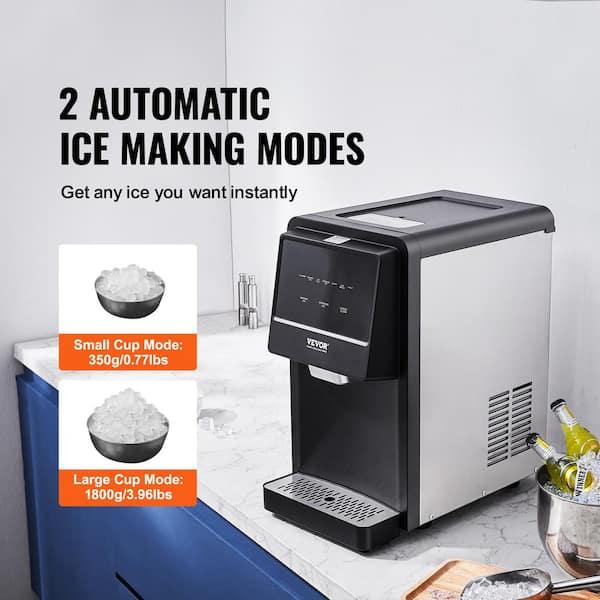
Upgrade to VEVOR Countertop Ice Maker For Minimum Downtime
If nothing seems to bring your old countertop ice maker back to life again, it might be time to move on and upgrade to a reliable ice maker that will provide a constant supply of ice.
Well, if you are looking to upgrade, check out VEVOR Countertop Ice Maker. It is a powerful ice maker and can quickly make ice cubes within 8 minutes. It can produce 6 lbs of ice within 2 hours and 62 lbs of ice within 24 hours. For your convenience, the ice maker has a self-cleaning feature, requiring minimum manual cleaning. This ensures that there is minimum downtime and you have a constant supply of ice cubes.
Besides its ice cube production capabilities, it also has phenomenal insulation to keep the stored ice cubes from melting in case of a power outage. It has a 2.5mm foam layer, stainless steel shell, and three layers of insulation material that help keep ice for over 8 hours. On top of all that, it comes with a 12-month warranty.
FAQs About Countertop Ice Maker Not Working
Why is my portable ice maker freezing up?
Besides the cold temperature of winter months, clogged filters, low water flow/pressure, and malfunctioning inlet valves could be the reasons why a countertop ice maker might freeze up.
How long do countertop ice machines last?
Countertop ice makers can last anywhere between 5 to 10 years, depending on usage and maintenance. If you get a quality ice maker from a reliable brand such as VEVOR, it might last even longer than that.
Can I leave my countertop ice maker on all the time?
Yes, you can leave your countertop ice maker on all the time. They are designed to be powered on continuously. And know that they do not consume much electricity.
Conclusion
To sum up, there could be many potential reasons for a countertop ice maker not working. Consider the potential causes discussed in this article to find out what is troubling your ice maker and how you can go about troubleshooting it.
Remember that regular cleaning and proper maintenance are key to minimizing downtime and ensuring that your ice maker continues working optimally for an extended period. And if you want your ice maker not to give up on you when you need it the most, consider upgrading to a reliable ice maker such as VEVOR Self-Cleaning Countertop Ice Maker.

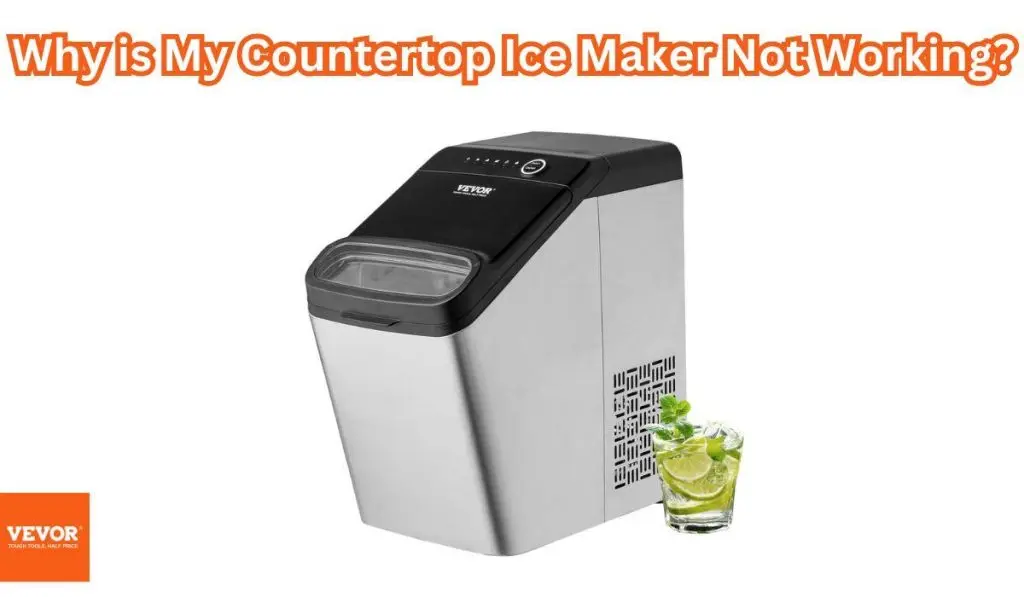
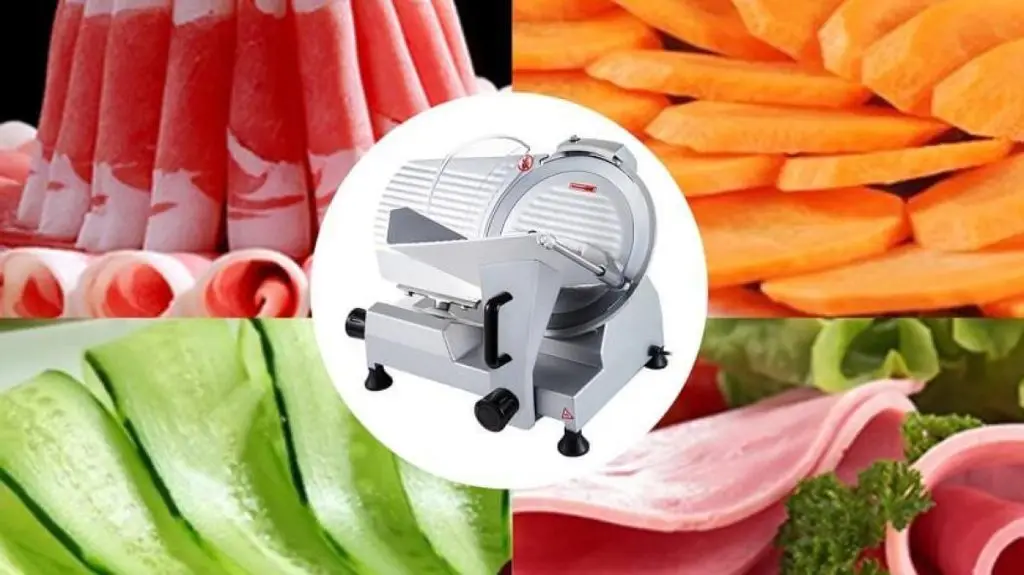
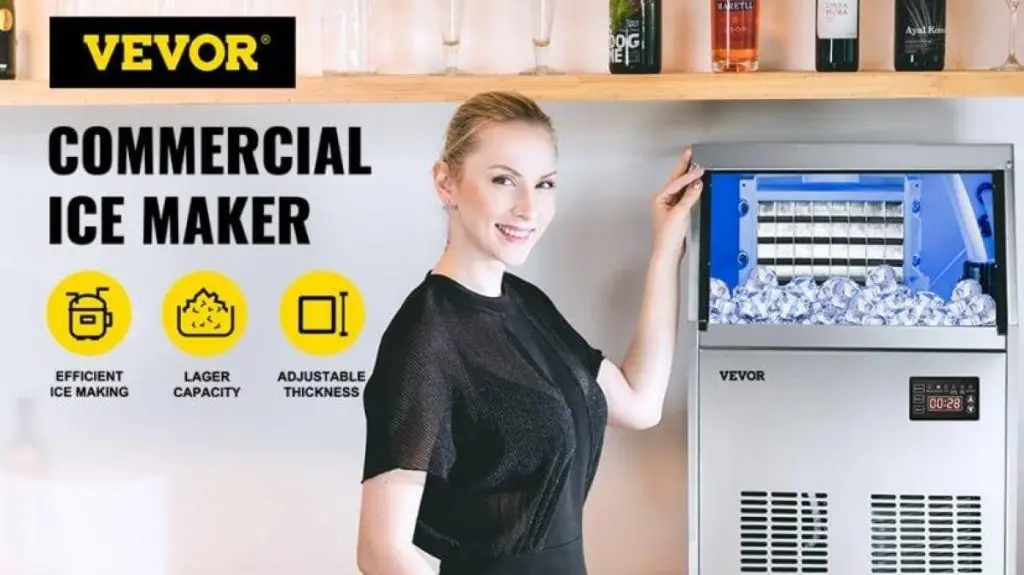

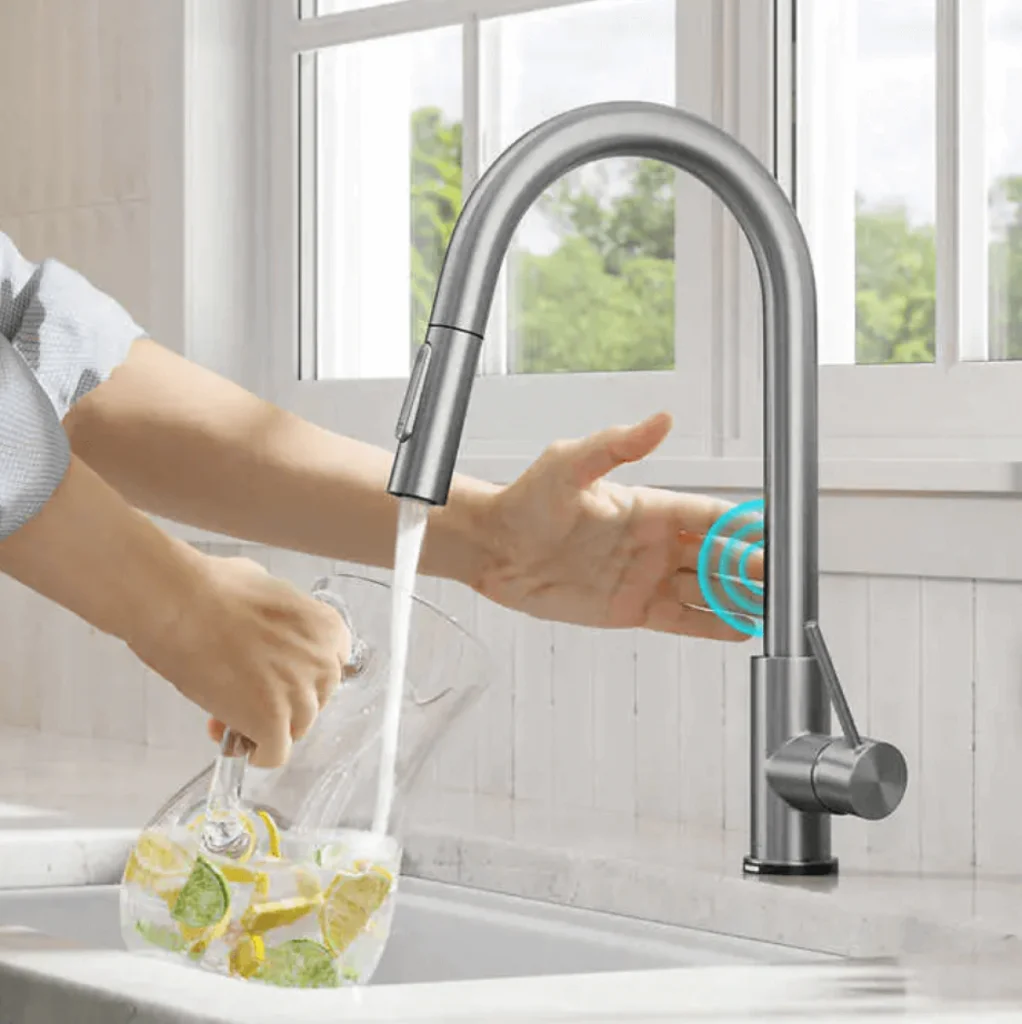
Appreciated. Comprehensively explained.